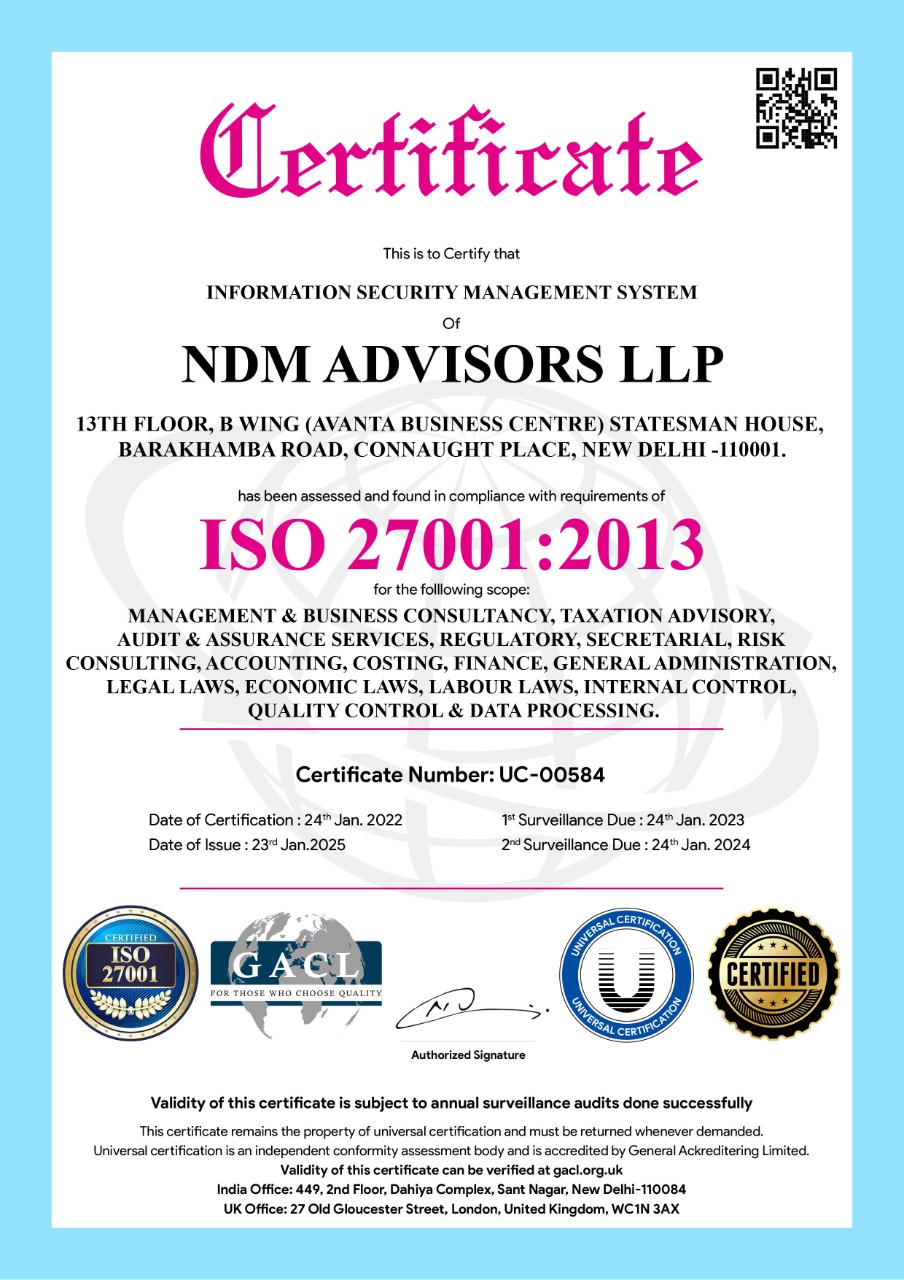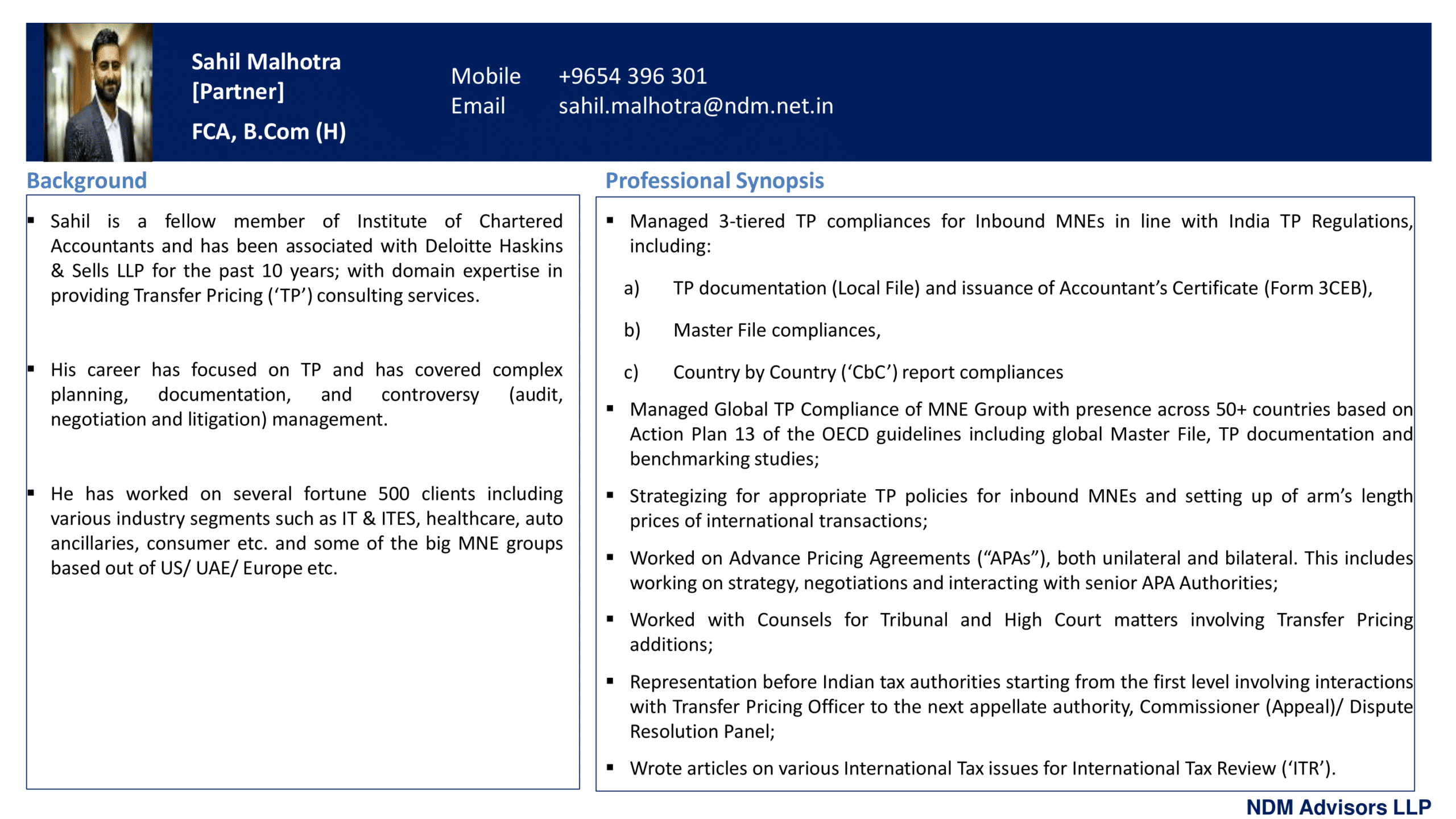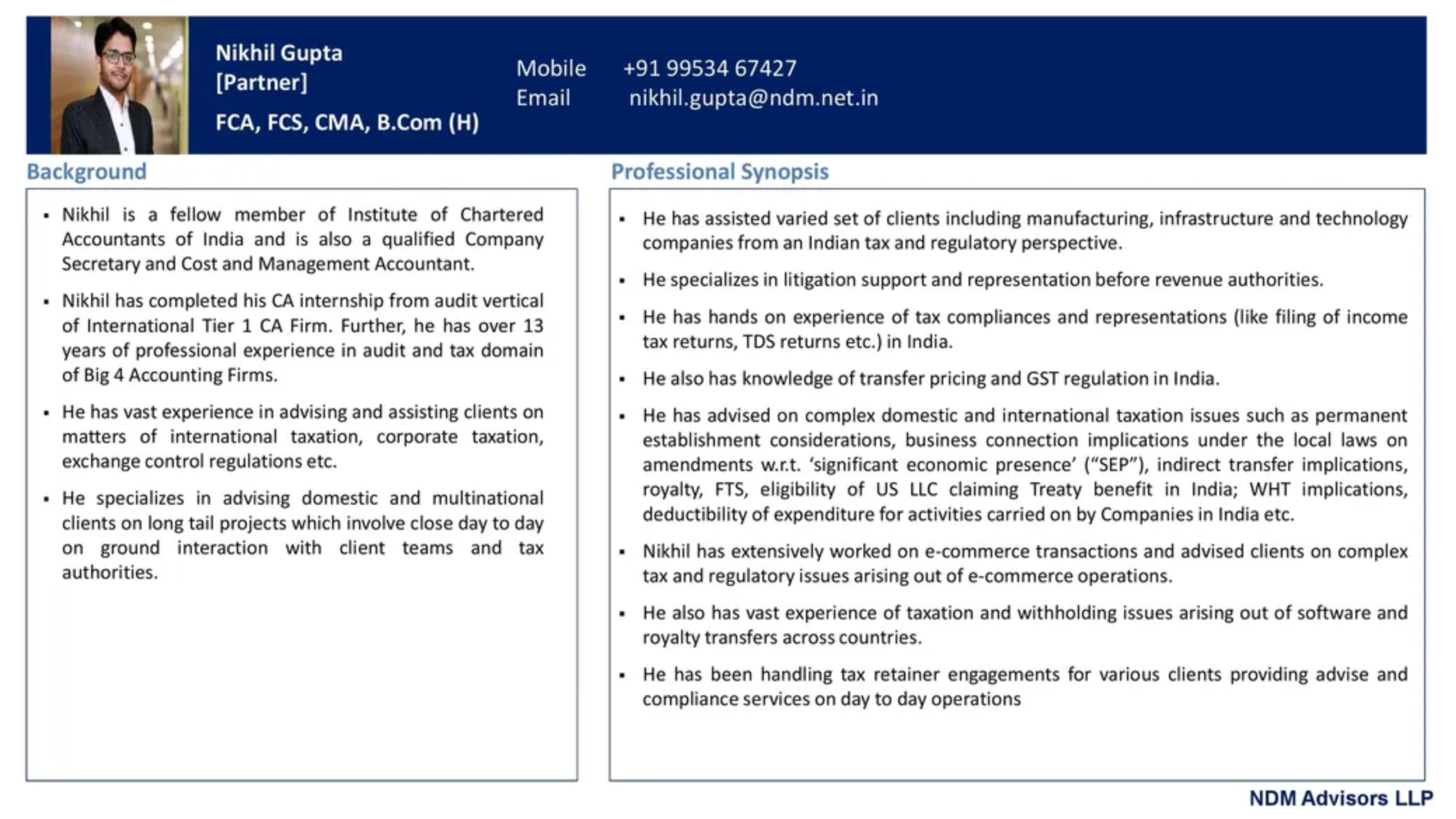Section 80-IAC: Unlock India’s Innovation Edge and Optimising Tax Savings for Companies

In today’s competitive landscape, global enterprises operating in India are increasingly looking to optimize their tax structures while fostering innovation. Section 80IAC of the India Income Tax Regulations offers a unique opportunity for eligible startups to claim a 100% tax holiday for three consecutive years, significantly improving cash flows and reducing the effective cost of innovation. For MNCs investing in Indian subsidiaries or innovation hubs, leveraging the 80IAC exemption is not just a tax-saving measure. It’s a strategic advantage that enhances profitability, encourages R&D, and strengthens India’s role in the global value chain.
Why Section 80-IAC
India’s startup story is no longer in its infancy. With new-age entrepreneurs building scalable technology-driven businesses, the government recognized early on that taxation in the initial years can act as a brake on growth. To counter this, Section 80-IAC was introduced in 2016 as a targeted measure to give breathing room to innovative ventures. Unlike general deductions available to all businesses, this provision is crafted only for “eligible startups” that meet strict policy criteria.

Applicability of Section 80-IAC
Section 80-IAC applies to eligible startups which fulfill the conditions prescribed under the Income-tax Act and certified by the Inter-Ministerial Board (IMB) for the purpose of claiming Section 80-IAC benefits as well as the Department for Promotion of Industry and Internal Trade (DPIIT).
DPIIT Recognition Key Eligibility Requirement:
- The entity must be incorporated as a Private Limited Company or LLP in India.
- Must be engaged in innovation, improvement, or development of products, services, or processes, or a scalable business model.
- Annual turnover must be less than ₹100 crore in any financial year since incorporation.
- Company must be incorporated between 1st April 2016 and 31st March 2030 (extended from March 31, 2025 as per Union Budget 2025-26).
- Entity should not have been formed by splitting up or reconstructing an already existing business or formation using previously used plant & machinery.
Quantum of Deduction
- An eligible startup can claim 100% deduction of profits and gains derived from the eligible business for any 3 consecutive assessment years out of 10 years from the year of incorporation.
- This provides significant relief in the startup’s initial growth phase by reducing the tax burden.
- The benefit is not transferrable among entities and can only be availed once per startup.
Practical Aspects
- The choice of which 3 years to claim the deduction rests with the assessee. Startups usually choose the years when they expect substantial profits.
- Proper compliance with recognition procedures, filing of forms, and certification is crucial.
- Once claimed, the deduction is subject to verification by the Assessing Officer based on documentation and IMB approval.

Application Process
- The startup must first obtain DPIIT recognition by applying via the Startup India portal, submitting details about innovation and business objectives.
- An application for Section 80-IAC exemption must then be made to the Inter-Ministerial Board (IMB) of Certification, which will review innovation claims, business scalability, and potential for economic growth.
- The IMB certification is mandatory for the exemption; the application review is typically processed within 120 days.
- The benefit must be claimed before filing the income tax return for the relevant year, and the three-year deduction block must be consecutive.
Significance of Section 80-IAC
- Reduces financial pressure on new businesses.
- Encourages entrepreneurship and innovation in India.
- Aligns with the government’s “Startup India” initiative, promoting ease of doing business.
- Helps startups reinvest their profits into expansion, technology, and employment generation.
Conclusion
Section 80-IAC serves as a vital tax incentive for startups, enabling them to thrive in their formative years without the immediate burden of income tax. However, stringent eligibility criteria and procedural requirements mean that startups must plan in advance and ensure compliance to fully benefit from this provision. With the growth of India’s startup ecosystem, this section continues to play a pivotal role in fostering innovation and economic development. It is imperative for the applicants to keep in mind that obtaining the exemption is far from straightforward. The process involves multiple layers of eligibility checks, detailed documentation, alignment with DPIIT requirements, and careful representation before the authorities. Even minor gaps in compliance or presentation can lead to rejection, making it essential for companies to approach this exemption with a structured strategy and expert guidance.
Have Any Question?
Send us a message and tell us more about your business and financial goals. We will get back to you soon to schedule a consultation.
- +91 9873210394
- Communications@ndm.net.in








